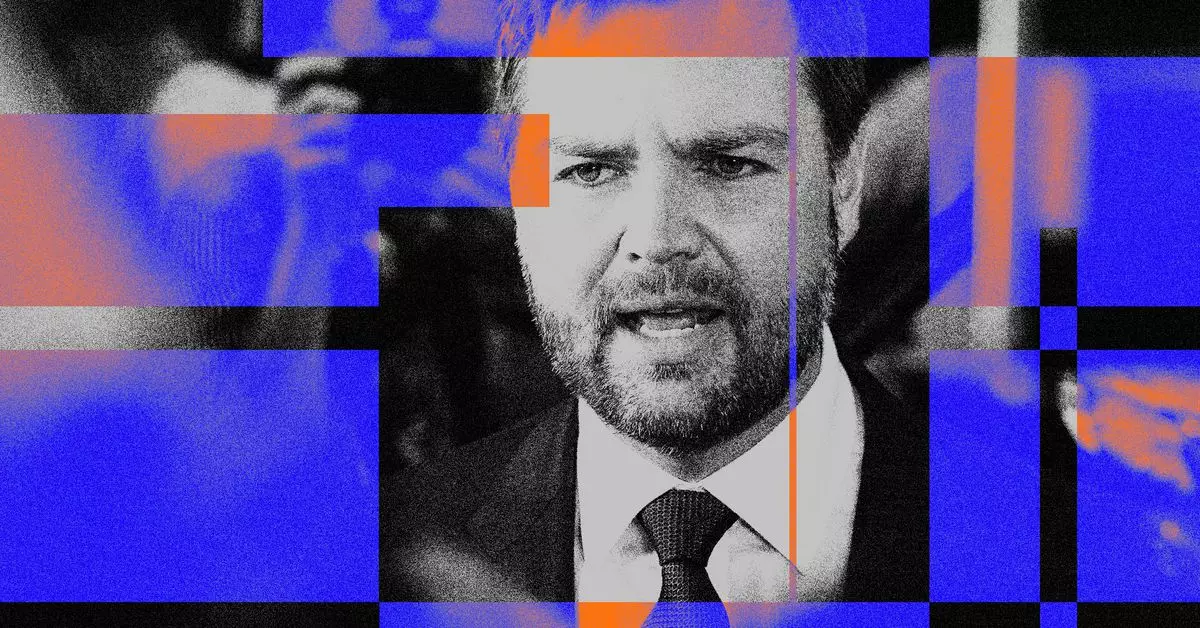In an era where information flows freely across digital platforms, the issue of censorship has become increasingly contentious. Major social media platforms like Meta (which encompasses Facebook, Instagram, and Threads) are tasked with balancing content moderation to protect users and the integrity of information. Recently, Meta’s decision to restrict links leading to Ken Klippenstein’s newsletter concerning a JD Vance dossier—reportedly obtained through an Iranian hack of the Trump campaign—has raised vital questions regarding the ethical implications of censorship in digital discourse.
Meta’s actions in removing posts that share links to the dossier highlight the company’s firm stance on its community guidelines. According to spokesperson Dave Arnold, content stemming from hacked sources or linked to foreign influence affecting U.S. elections falls outside acceptable parameters. This move is purportedly grounded in safeguarding democracy and preventing interference from non-state actors. Nevertheless, the question arises: Are such measures genuinely in the public’s interest, or do they serve to suppress critical narratives?
Users on Threads have voiced their concerns, reporting that posts containing links to the dossier were removed without clear justification. Additionally, attempts to share alternative links to documents hosted on platforms such as Google Drive and Scribd have also faced restrictions. The requirement for users to resort to creative workarounds—like altering the format of the links or using QR codes—exposes the shortcomings of Meta’s censorship policies. This environment has fostered a breeding ground for shadow censorship, where users feel the need to evade regulations to access or disseminate certain types of information.
The crux of Meta’s actions falls into a broader debate surrounding free speech and the responsibilities of social media platforms. While efforts to protect users from misinformation are vital, there exist inherent dangers in the blanket application of such bans. Censorship could inadvertently shield significant political narratives from scrutiny, particularly those associated with foreign governmental influences. By prioritizing the prevention of specific content, platforms risk developing an echo chamber that stifles authentic discourse.
Moreover, the implications of these limitations extend beyond simply stifling certain topics. As users become aware of such censorship, it may foster a sense of distrust towards platforms that claim to champion freedom of expression. The irony of employing counterproductive censorship tactics might place users in a position of self-censorship or evasion, positioning Meta’s platforms as gatekeepers of information rather than platforms fostering open and vibrant dialogue.
In response to incidents like these, a call for greater transparency in moderation policies gains resonance. Social media users should be informed of the criteria and rationale behind content removals, as ignorance breeds suspicion and discontent. Understanding the underlying motivations that guide content regulation can help users navigate the complexities of social media landscapes.
Ultimately, while the intention of curbing foreign influence and protecting electoral integrity remains commendable, it is essential for platforms like Meta to implement these policies judiciously. Striking a balance between safeguarding democracy and preserving open discourse will be the defining challenge of this digital age. The conversation surrounding censorship is far from over; as social media evolves, so too must our approaches to information sharing and community engagement.


Leave a Reply